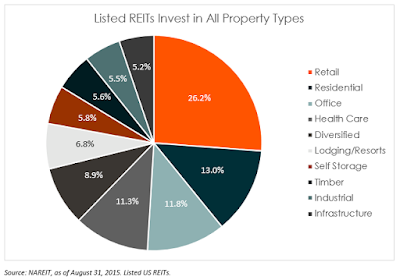What is REITs(Real Estate Investment Trusts)?
Real Estate Investment Trusts; REITs
Investment is always associated with risk, and more
profitable investments have higher risks. But the real estate market is one of
the least risky but most profitable options for investors. A real estate
investment fund is a business unit that buys, creates and manages a portfolio
of real estate-based assets in order to make a profit. The profits from this
investment portfolio are distributed among the shareholders of the Real Estate
Fund.
REITs are real estate companies that operate on the stock
exchange and sell shares to people. But these companies have two main features:
1 - Manage a set of assets (land, tower, store, etc.).
2 - A large part of the profits are distributed among
shareholders (for example, 75 or 90%).
.
REITs were first created in the United States in 1961, when
the Congress passed a law allowing investors to buy and trade stocks of
mortgages and real estate, as well as other assets on the stock exchange. . On
January 1, 1961, the Supplement to the Tax Law provided for special tax
benefits for this new type of investment company. According to the supplement,
if real estate investment funds meet certain conditions, their dividends will
be tax-exempt. That is, if a REITs distributes 100% of its profits, it has no
obligation to pay taxes to the government. The law was passed to provide all
investors with the opportunity to invest in a diverse portfolio of real estate.
With the passage of this law, it became possible to invest in real estate
assets by buying and selling securities.
Since then, the funds have been set up in most countries
around the world. The value of the global REITs market in 2016 was 1.1
trillion, according to the National Real Estate Association (NAREIT). About 66%
of the funds are distributed in the United States, followed by 7.2% in Japan,
7% in Australia and the rest in the rest of the world.
Types of REITs:
- Equity REITs
They buy and manage real estate. These funds are engaged in
a wide range of activities such as leasing, maintenance, real estate
construction and service delivery to tenants. The main difference between these
funds and real estate operating companies (REOCs) is that they are used to buy
or build equipment for maintenance, management, and ultimately to earn money
(mostly rent), not for sale.
- Mortgage REITs
Most of their capital portfolio includes direct investment
through lending to real estate owners and real estate companies (REOCs) or
indirect investment through the purchase of mortgage-backed mortgages or
securities.
- Hybrid REITs combined real estate investment funds
Its investment portfolio includes real estate and financial
assets.
Some of the most important areas of activity of these funds
are:
- Retail REITs
- Residential REITs
- Hospital REITs
- Office REITs
- REITs Hotels
For example, retailers' RITEs, which account for the largest
share of the market, are called REITs that operate in the real estate and
department stores. The figure below shows the share of each type of housing and
real estate investment fund, whose information is taken from the S&P index
of the US stock market.
Advantages of investing in REITs:
- Tax benefits: If legal requirements are met, REITs
dividends are exempt from corporate taxes.
- Liquidity: REITs stocks are highly liquid, especially if
listed on the stock exchange.
- Variety of investment: REITs allow you to invest in
non-residential real estate such as hotels, shopping malls and other commercial
and industrial real estate.
- Professional Management: By investing in REITs, investors
benefit from professional management to manage the portfolio of real
estate-based assets.



